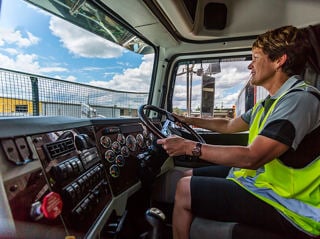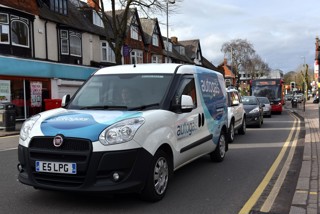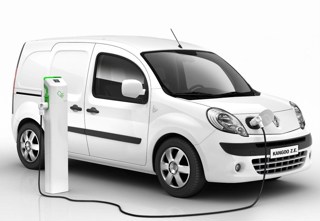Internal combustion engines are expected provide a cheaper and cleaner alternative to fully-electric powertrains in heavy trucks, according to industry experts.
Advancements in exhaust after treatment and new powertrain technology could mean that diesel and gas powered trucks will provide the cleanest from of propulsion for heavy vehicles, in the medium term.
Emissions from trucks and buses can already be reduced to the same levels as those of the latest passenger cars (Euro 6d-Temp), with technology that is readily available.
Andy Eastlake, managing director of LowCVP, said: “We have to get on and do things. We can’t wait for the politicians and the regulations.
“Road to Zero is not a road to electric. There are different ways of getting zero emissions. In 2040 there might be a combustion engine that has true zero-emissions.
“Internal combustion engines are going to be in play for a long time to come - hopefully we will be burning stuff that is renewable.”
Engineers at truck exhaust specialist Eminox have developed retrofit kits for older vehicles, allowing them to reach Euro VI standards, and the company is working on technology to reduce emissions for new vehicles.
According to Steve Whelen, technical director at Eminox: “If you put new technologies in the hands of OEMs, the future looks very good.
“The NOX problem is not really an issue for diesel engines anymore. You’ll have virtually zero NOX from an internal combustion engine going forward.”
One of the biggest challenges with diesel engine, explained Whelean, is achieving Euro VI at lower temperatures.
Refuse trucks are especially difficult becuase the engine rarely gets hot enough for the Selective Catalyst Reduction (SCR) system to become effective.
SCR works by injecting adblue into the exhaust, forcing a chemical reaction which converts harmful emissions into nitrogen and oxygen.
“If you use it in a hybrid, where the engine acts as a generator and heat cycles are less of an issue, then you can optimise the after-treatment package to get virtually zero-emissions,” Whelen added.
Hybrid trucks also offer the benefit of running on zero-emissions in cities, using batteries instead of the engine for power.
Martin Flach, alternative fuels director at Iveco, said: “We’ve been building hybrid vehicles since Euro IV but the costs haven’t balanced out historically. Operators didn’t save enough on fuel to justify the higher purchase price.
“The next generation will need to have a good zero-emission capability, so in 2040 we believe the combustion engine will be used for providing long-range and the battery for zero-emission city delivery.”
Powering a combustion engine with natural gas provides a further reduction in emissions over diesel, while bio-gas provides even greater benefits.
Refuelling a gas-powered vehicle is also a lot less time consuming than recharging an electric one.
“They aren’t the long term answer,” said Flach, “but gas trucks are certainly the best opportunity to do something now. If we all wait for electric vehicles to do what we want them to do, we’ll be waiting until 2040.”
While electric power work well for small urban delivery vehicles, it isn’t as good on heavy haulage as the batteries are still too expensive and too heavy.
Flach said: “You can make large electric vehicles but they are eye-wateringly expensive, have limited range and lower payload.”
There are two main challenges with electric vehicles, according to Whelen. Energy storage and charging infrastructure.
“In a passenger car the load on the battery is very light. Most cars will travel at high speed with little battery depletion because you never run at rated load.
“In a truck the load is very heavy, which means the battery will deplete much more quickly. This can be mitigated by fitting more batteries, but they add weight and reduce payload,” he explained.
Fitting more batteries will also increase the re-charging time, which in turn will create extra downtime for the vehicle.
“It’s just physics, electric trucks are a long way off in heavy duty usage – it’s the same for industrial and construction equipment. They operate at high load and the technology just isn’t there,” explained Whelan.





















Ken Ling - 28/02/2020 16:25
Great article, electric is not the way forward in the Uk, too many houses have no parking, diesel zero emissions is the way as you say. We should all be petitioning the manufacturers and the governments to go this way.